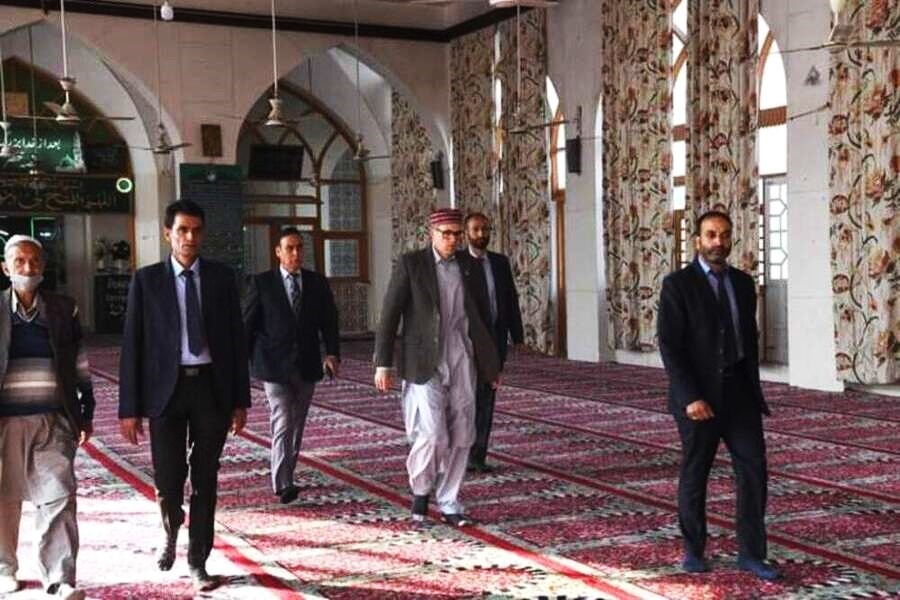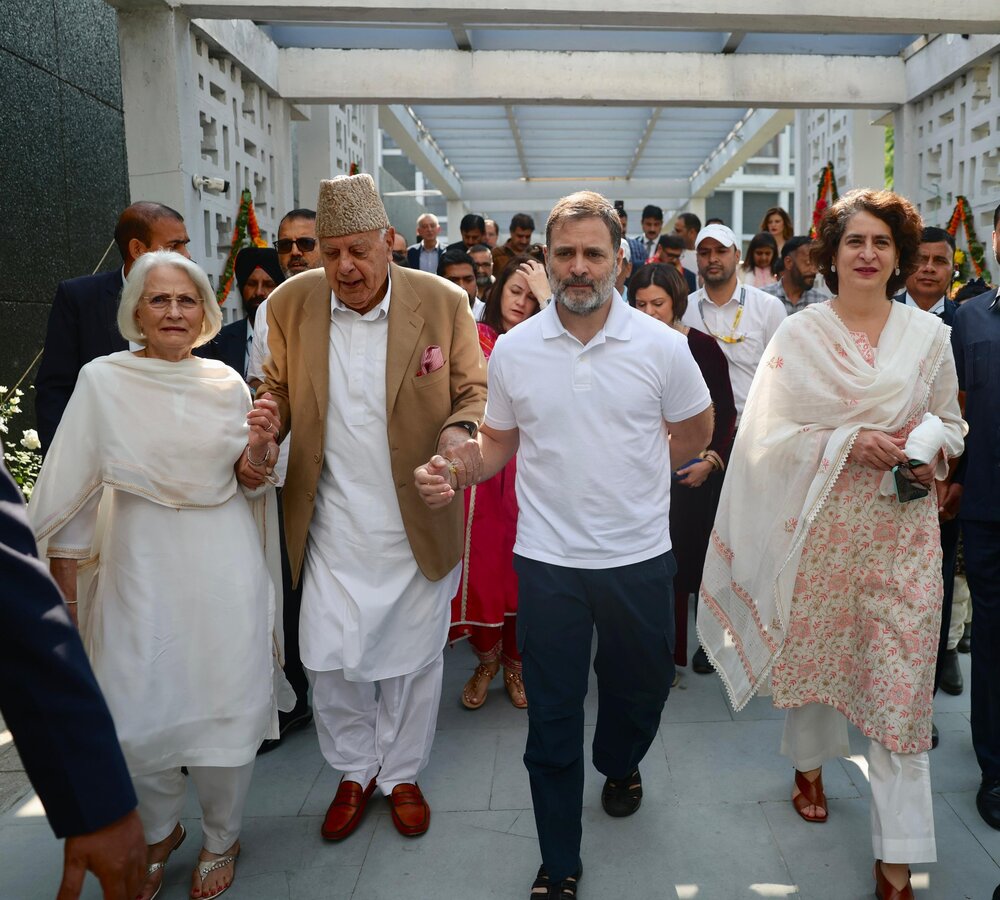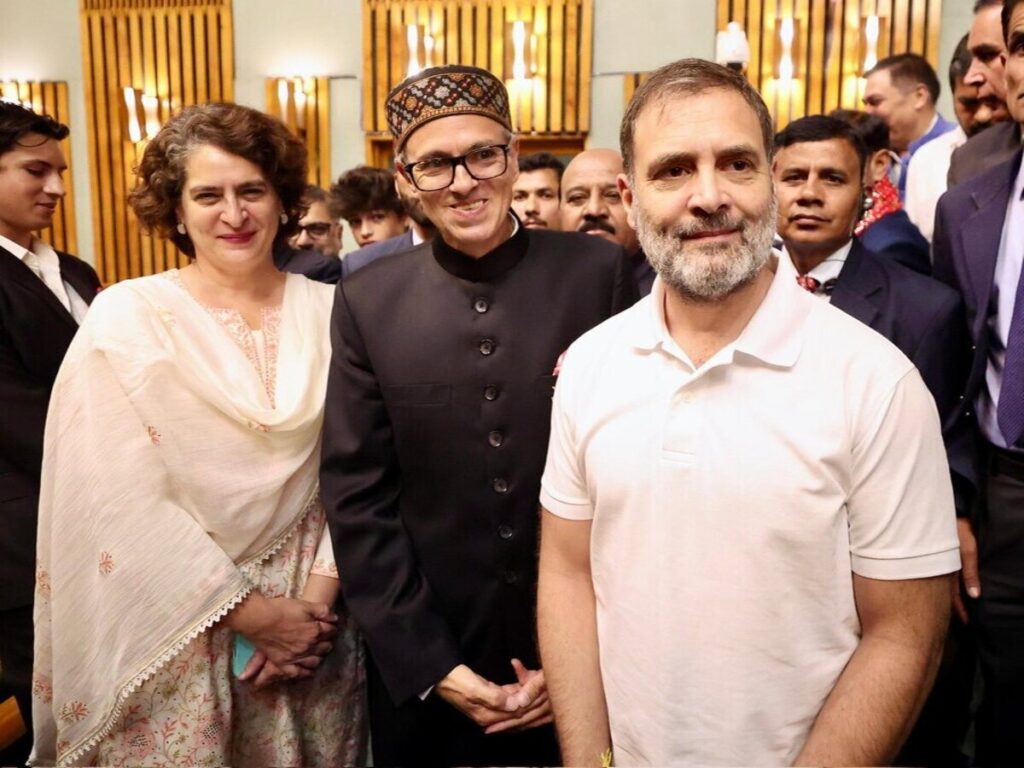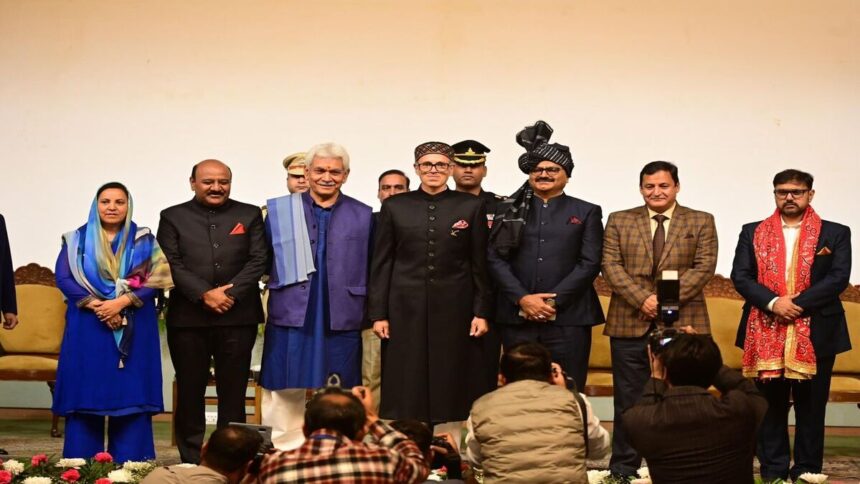In a significant political development for Jammu and Kashmir, Omar Abdullah was sworn in as Chief Minister, accompanied by five ministers, including Surinder Kumar Choudhary, who has been appointed as his deputy. Abdullah’s decision to choose Choudhary has sparked interest and discussions about the implications for governance and representation in the region.
A Voice for Jammu
Omar Abdullah rationale for selecting Choudhary is rooted in his commitment to ensuring that the people of Jammu feel represented within the government. He emphasized, “I had said that we will not allow Jammu to feel that they do not have a voice or representatives in this government.” By appointing a deputy chief minister from Jammu, Abdullah aims to reinforce the message that the administration is inclusive and caters to the needs and concerns of all regions within the union territory.

Choudhary, who recently transitioned from the Bharatiya Janata Party (BJP) to the National Conference (NC), won his seat in Nowshera by defeating the BJP’s local president, Ravinder Raina, by a substantial margin of 7,819 votes. This victory marks a significant shift in the political landscape, as Choudhary is now the only National Conference MLA representing Hindu-majority areas. His election reflects a growing desire among voters for diverse representation and voices in governance.
Background and Political Journey
Surinder Kumar Choudhary’s political journey has been anything but ordinary. Initially a member of the People’s Democratic Party (PDP), he joined the BJP in 2022 before shifting to the National Conference in July of the same year. His ability to navigate different political ideologies demonstrates his adaptability and the changing dynamics of political allegiances in the region.

During the 2014 assembly elections, Choudhary faced a tough battle against Raina, losing by over 10,000 votes while running on a PDP ticket. His recent victory signifies not only his personal political comeback but also a shift in voter sentiment, as constituents seek leaders who can authentically represent their interests.
Reaffirming Inclusivity in Governance
Being the first elected government after Article 370 was repealed in 2019, which deprives the territory of its unique status and divides it into two union territories, Omar Abdullah’s administration represents a turning point in the history of Jammu and Kashmir. Abdullah’s declaration that the administration will place a high priority on cooperation and agreement among diverse stakeholders further demonstrates his dedication to inclusion.
In order for the people of Jammu to feel that this administration is as much theirs as it is of the others, I have appointed a deputy chief minister from the state, he said. This declaration emphasizes his goal of bridging any historical divides and promoting harmony among Jammu and Kashmir’s varied communities.

Challenges Ahead
While Omar Abdullah appointment of Choudhary is a strategic move aimed at enhancing regional representation, it also highlights the challenges that lie ahead. The newly formed government must navigate the complexities of a divided political landscape while addressing the concerns of constituents who feel disenfranchised by the central government’s policies.
As the National Conference holds a majority with 42 seats in the newly formed assembly, the collaboration with the Congress, which secured six seats, will be crucial. The Congress party has decided to support Abdullah’s government from the outside, expressing dissatisfaction with the current status of Jammu and Kashmir as a union territory. Congress leaders have made it clear that their support is contingent upon the restoration of full statehood.
A Call for Statehood Restoration
Both Omar Abdullah and Congress leaders have echoed the sentiment that the restoration of statehood is essential for the true functioning of democracy in Jammu and Kashmir. They emphasize that the current governance structure is temporary and that there have been assurances from the central government regarding the return to statehood.
Congratulations to CM Omar Abdullah and to the people of Jammu and Kashmir.
However, government formation without statehood felt incomplete today.
Democracy was snatched from the people of Jammu and Kashmir, and today we renew our pledge to continue our fight until statehood…
— Rahul Gandhi (@RahulGandhi) October 16, 2024Omar Abdullah stated, “I have always maintained that our status as a UT is a temporary one.” His remarks reflect a broader political consensus that restoring statehood is imperative for stabilizing governance and meeting the aspirations of the people.
With his new administration, Abdullah aims to set a collaborative tone, as evidenced by his introductory meeting with key administrative officials and ministers. The presence of Choudhary in this meeting symbolizes a commitment to inclusive governance and regional representation.
As the political landscape in Jammu and Kashmir continues to evolve, the choices made by Omar Abdullah and his administration will play a pivotal role in shaping the future of the region. The success of this government will depend not only on its ability to address local concerns but also on its capacity to unite diverse voices and foster a sense of belonging among all citizens.
The appointment of Surinder Kumar Choudhary as deputy chief minister signifies more than just a political maneuver; it represents a conscious effort to bring inclusivity and representation to the forefront of governance in Jammu and Kashmir. Omar Abdullah leadership will be tested as he navigates the complexities of this new political era, with the restoration of statehood and true representation at the core of his administration’s agenda.
Read More: Canada Accuses India of Disturbing Violence: Strengthening Diplomatic Ties Amid Tensions






